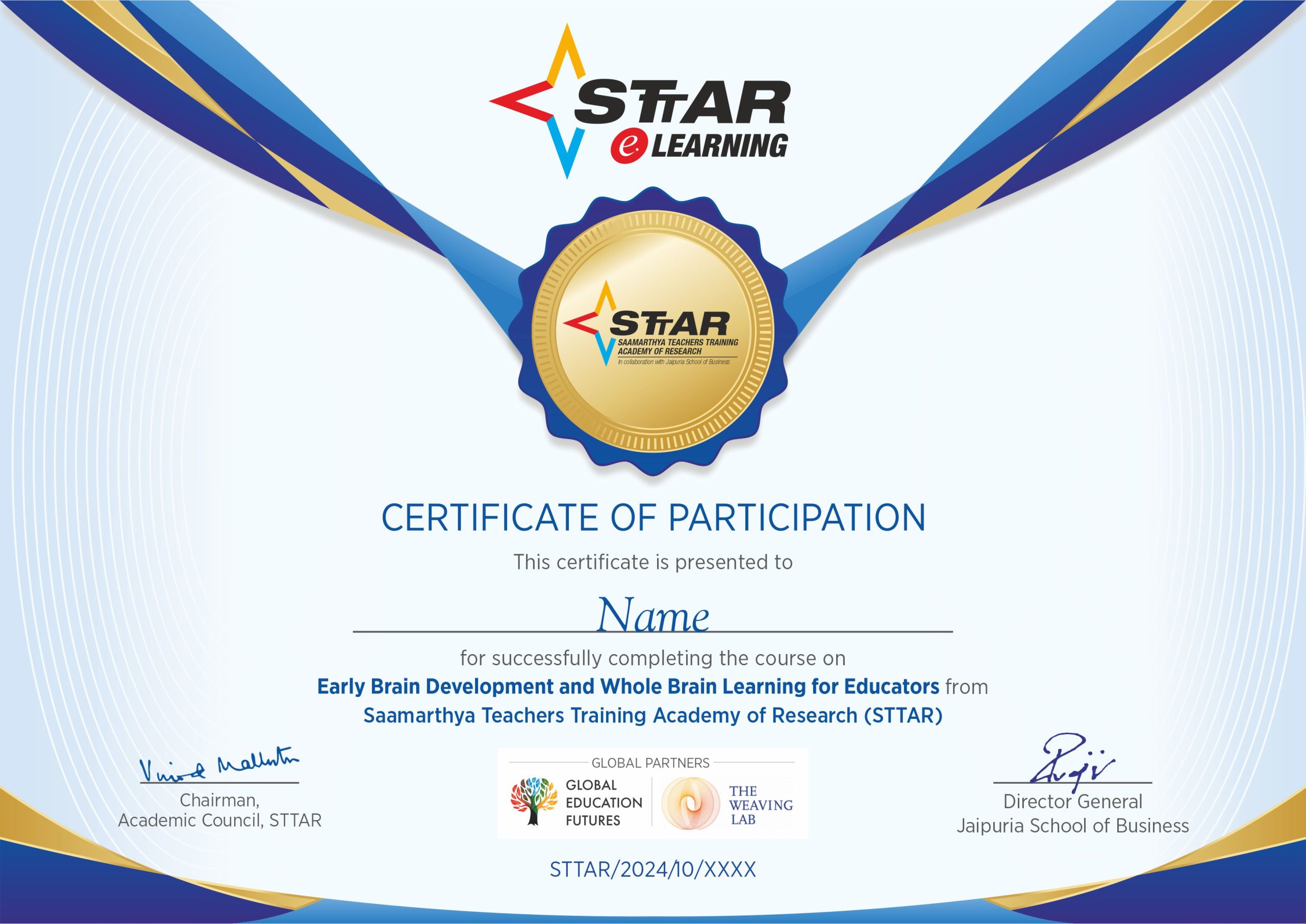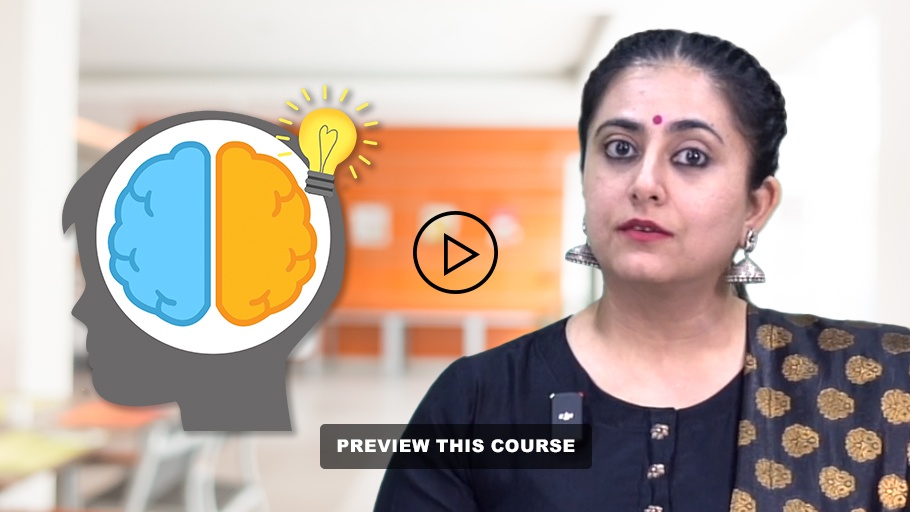Early Brain Development and Whole Brain Learning for Educators
Discover actionable strategies to stimulate early brain development in young learners to ensure whole-brain learning and enhanced outcomes.
By taking this course, participants will be able to:
- Learn about early brain development and its significance in shaping young minds
- Encourage interactive activities that involve both hemispheres of the brain
- Use visuals, auditory aids, tactile materials, and kinesthetic activities for students with different learning preferences
- Integrate brain breaks and attention grabbers into lessons
- Encourage teamwork to foster interpersonal connections and promote SEL
- Use assessments and feedback to enhance your teaching
- Improve student focus and reduce stress through Brain Dance and Double Doodle
Reviews (205)
About Course
About Instructor

Ms. Amrit Nagpal
Expert in Early Years’ Education
6.5 hours
29
1
3
Pre-Primary Educators
Lifetime Access
STTAR E-Learning Certificate
259
6.5 hours
29
1
3
Pre-Primary Educators
Lifetime Access
STTAR E-Learning Certificate
259
Course Structure
- 1.1 Brain Development Quick Trivia
- 1.2 What makes up the brain ? Part 1
- 1.3 What makes up the brain ? Part 2
- 1.4 Brain Development Timeline
- 2.1 Introduction to Whole Brain Learning
- 2.2 Importance of catering to diverse learning styles
- 2.3 Understanding Learning Preferences of left brain learners
- 2.4 Understanding Learning Preferences of right brain learners
- 2.5 Exploring Learning Preferences via Plant Life topic
- 2.6 Explore the science behind Whole Brain Learning and its importance in student engagement
- 2.7 Strategies and approaches that promote whole brain integration Part 1
- 2.8 Strategies and approaches that promote whole brain integration Part 2
- 2.9 Assessments techniques that consider diverse preferences
- 2.10 Key principles of whole brain teaching lesson plan
- 2.11 Attention Grabbers
- 2.12 Other essential Whole Brain Teaching activities
- 2.13 Sample Lesson Plan on Whole Brain Teaching
- 3.1 Brain Dance
- 3.2 Breath and Tactile
- 3.3 Core – Distal and Head – Tail
- 3.4 Upper – Lower and Body side
- 3.5 Cross Lateral and Vestibular
- 3.6 Benefits of Brain Dance
- 3.7 Introduction to Double Doodle
- 3.8 What are bilateral activities and its importance
- 3.9 PACE
- 3.10 Finger Doodles
- Conclusion
- Assessment 1 – MCQs
- Assessment 2 – Whole Brain Lesson Plan Template
- Assessment 3 – Activity Colour the lobes
- Handout
Course FAQs
This course is designed for early childhood educators, centre heads, preschool directors, pre – primary teachers, preschool teachers, caregivers, and parents interested in understanding and enhancing brain development in young children through innovative teaching methods and activities.
You will learn about key concepts in early brain development, whole brain teaching techniques, brain dance and the double doodle activities. The course will provide practical strategies for fostering cognitive growth in young children and integration of these skills through various subjects.
Yes, upon successfully completing the course and its assessments, you will receive a certificate of completion that acknowledges your understanding and application of the course material.
The course is self-paced, allowing you to complete it according to your schedule. Generally, participants are given several weeks to a few months, depending on the course structure, to finish the material.
Yes, you can enroll in and complete multiple self-paced courses simultaneously, as long as you can manage the workload and meet the deadlines for each course.
Yes, assessments are typically a required part of the course to ensure comprehension and application of the material. These assessments may include quizzes, practical exercises, or projects related to the course content.

Earn The STTAR Certificate
All participants will receive a highly valued Certificate of Participation from STTAR and its global partners Global Education Futures and The Weaving Lab from Netherlands.
After finishing the course, you will get a Certificate from STTAR in collabration with our Global Partners – Global Education Futures and The Weaving Lab.
All you need to know about Active Learning
People love learning with STTAR







